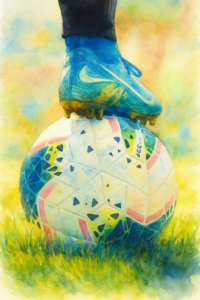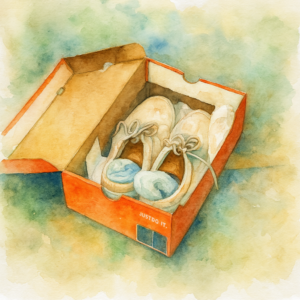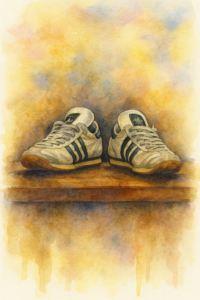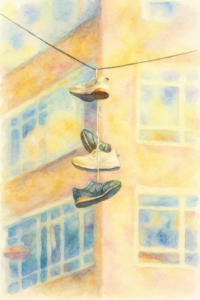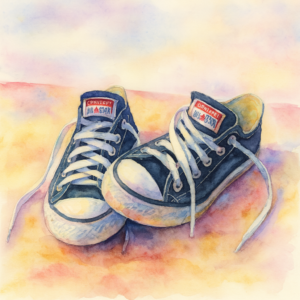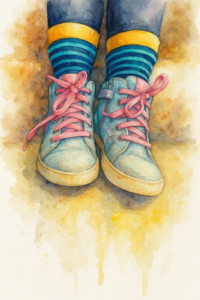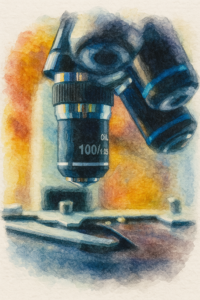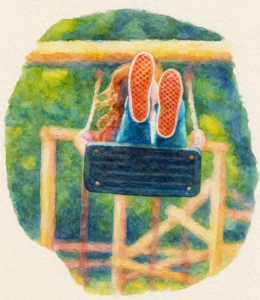Learn French with this clip from Les P’tits Bateaux. Find the full episode here. We do not own the content. The above audio sample and transcription is from Les P’tits Bateaux podcast. We do not own the content. Listen to the entire episode here. l’alpinisme What’s opening up for you with this clip? Comment below…
Start quiz, type what you hear, then join the conversation.
Did you find this one challenging or easy? Did you hear something diffferent? What surprised you? What levels did you complete? Comment below and share what’s opening up for you with this quiz.
Learn French with this clip from Les P’tits Bateaux. Find the full episode here. We do not own the content.
The above audio sample and transcription is from Les P’tits Bateaux podcast. We do not own the content. Listen to the entire episode here.
l’alpinisme
What’s opening up for you with this clip? Comment below with what was surprising, easy, challenging and/or interesting.
The snippet in English
Find a translation of this snippet here, how much of this did you hear?
En fait, il y a beaucoup de gens ont inventé l’escalade. Alors, en fait, c’est lié les escalades d’abord à l’alpinisme, c’est-à-dire à ces personnes qui veulent gravir une montagne, qui veulent aller jusqu’au sommet.
Et à un moment donné, il y a des passages où il faut escalader les rochers sur la montagne.
Alors, qui fait ça ?
In fact, a lot of people invented climbing. So, in fact, climbing is linked first and foremost to mountaineering, i.e. to those people who want to climb a mountain, who want to get to the top.
And at some point, there are passages where you have to climb the rocks on the mountain.
So, who did that?
The above translation from Deepl
What does “c’est lié” mean?
C’est lié means it’s connected or it’s related.
Je pense que c’est lié à son travail.
(I think it’s related to his job.)
– From the verb lier (to link, to tie)
– Often used for causes, explanations, or relationships between things
– Can refer to emotional, logical, or factual connections
What does “l’alpinisme” mean?
L’alpinisme means mountaineering or alpine climbing — the sport of climbing high mountains, especially in snowy or rocky conditions.
L’alpinisme demande une excellente condition physique.
(Mountaineering requires excellent physical condition.)
– Involves climbing, hiking, and technical skills (ropes, crampons, etc.)
– More demanding and risky than simple hiking (la randonnée)
– Popular in the Alps and parts of France like Chamonix and the Mont Blanc region
What does “gravir une montagne” mean?
Gravir une montagne means to climb a mountain.
Ils ont réussi à gravir la montagne en deux jours.
(They managed to climb the mountain in two days.)
– gravir = to climb up something steep or difficult
– More intense or technical than monter
– Often used for physical or symbolic challenges (gravir les échelons = to climb the ranks)
What does “les rochers” mean?
Les rochers means the rocks or the boulders.
Fais attention en marchant sur les rochers, ils sont glissants.
(Be careful walking on the rocks—they’re slippery.)
– Plural of rocher (rock, large stone)
– Often refers to natural, rugged stones found in mountains, coasts, or climbing areas
– Can also appear metaphorically to suggest something hard or solid
Les P’tits Bateaux Podcast
Official synopsis: Les enfants posent des questions, des spécialistes leur répondent. Jeunes (et moins jeunes !) peuvent poser toutes les questions possibles et imaginables directement par message vocal via franceinter.fr, sauf pendant les vacances.
I recently discovered this podcast from InterFrance and love it. It’s kids posing questions and the host brings in experts to explain. And it’s aimed at young French kids, not French learners. That’s my favorite kind of content. Being for French kids is what makes it so good.
You’ve got real people (a kid, a host, and an expert), all speaking real French — no AI generated stuff here. The kid asks a question, and then an expert explains it in short, clear language. There’s a ton of repetition, natural turns of phrase, and just enough challenge to keep your ears working.
And because it’s meant for French-speaking kids, the adults naturally explain things simply but not condescendingly. You get exposed to rhythm, tone, interjections (bah, ben, alors), and full sentences — but also some real dialogue dynamics. And that’s gold if you’re trying to move from textbook filler to actually speaking and thinking in French.
Improving your French Listening Comprehension with Podcasts
On this site, fast spoken French is finally accessible to all levels. The tool break podcasts into short clips each set to transcription fill-in-the-blank practice. My favorite practice in class is always dictées. While they can seem overwhelming at first, the confidence boost and skills payoff for doing the work pays off. They’re perfect for anyone at any level, from advanced students to those just starting.
We use podcasts and our practice exercises to make it possible for anyone, anywhere to immerse in French with fun and ease. Join us and enjoy French, one short clip at a time. Let’s learn together!
Make the most of the site:
- Daily Podcast Listening: Start your day with a French podcast from our collection. Choose episodes that align with your interests to keep it engaging.
- Active Listening Practice: As you listen, try to pick out key phrases and vocabulary. Use our daily quizzes to test your understanding and reinforce learning.
- Repeat and Shadow: Listen to the same podcast segment multiple times. Try to mimic the pronunciation and intonation to improve your spoken French.
- Note-taking: Jot down new words or phrases you encounter. Review these notes regularly to enhance vocabulary retention.
- Reflect and Respond: After each episode, summarize the main points in French, either in writing or aloud. This helps in consolidating your learning and improving your expressive skills.
- Read More:
- True Beginner or A1 Learners: discover tips learning with podcasts at an introductory level.
- Discover all the podcast clips on FrenchIRL organized by level.
- Top Tips: Here’s how I make the most of my own site.
I created the French In Real Life project because I wanted to understand more than just my teacher and youtubers who cater to learners. I wanted to understand the French I hear in France. I hope you can benefit as much as I have. Become a supporting member for access to all clips.
What’s opening up for you?
Comment below with what’s opening up for you with this clip. What do you love about this? What was challenging? What was easy? Share your learning progress below!
Learn French with this clip from Les P’tits Bateaux. Find the full episode here. We do not own the content. The above audio sample and transcription is from Les P’tits Bateaux podcast. We do not own the content. Listen to the entire episode here. l’alpinisme What’s opening up for you with this clip? Comment below…
Start quiz, type what you hear, then join the conversation.
Did you find this one challenging or easy? Did you hear something diffferent? What surprised you? What levels did you complete? Comment below and share what’s opening up for you with this quiz.

